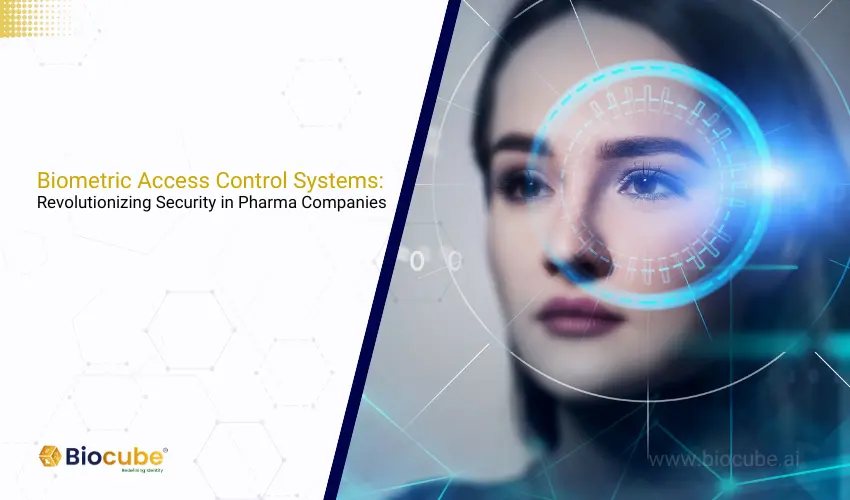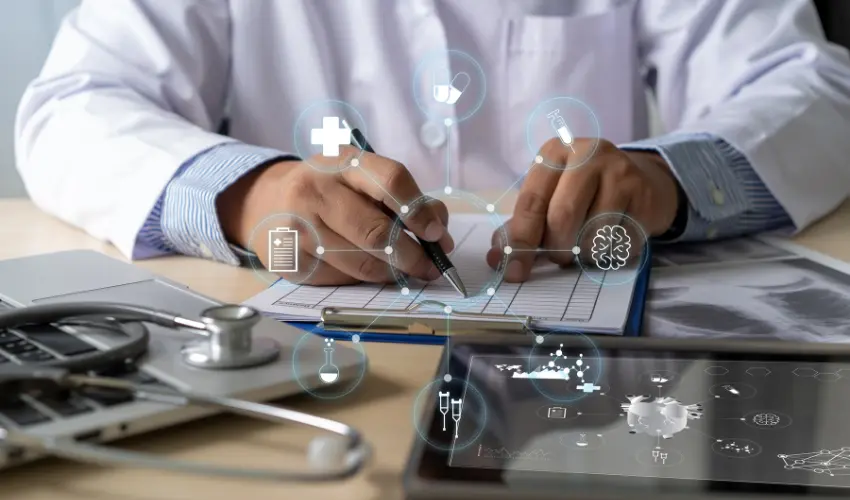
Biometric Access Control Systems: The global physical access control system (PACS) market will scale from US$9.8 billion in 2024 to US$24.9 billion by 2034, with a CAGR of 9.8%. Other research suggests that the growth of PACS is a result of the adoption of biometric technology, IoT integration, cloud-based solutions, and others.
The demand for biometric PACS is rapidly growing because of the unique advantages the technology provides beyond security. Pharmaceutical companies are often at risk of lawsuits due to many reasons, such as faulty procedures, compliance, human error, etc.
The implementation of biometrics in pharmaceutical companies lightens this load by bringing more transparency into the system and ensuring that necessary steps are taken to maintain the guidelines.
Table of Contents
Biometric Access Control: Beyond Security in Pharma Companies

Headcount Control
Biometric Access Control systems are highly beneficial in risk-prone areas, especially pharmaceutical companies. Generally, a limited number of people receive access at a single time to enter such areas. However, the guidelines could be avoided, leading to severe damage.
Setting conditions linked with biometric PACS, such as the total entries, can help to avoid issues without human intervention. The headcount detection and control system can even reduce the incidences in a particular organization’s area.
If the AI-powered biometric access system detects exit counts, too, it can even detect the time an individual spends in sensitive areas. This can further help supervisors manage the average time a worker requires.
Intruder Prevention
Pharma companies are often at risk from intruders who want to steal or damage the facility. The goods are sold off in the market. Installing a biometric access control system with liveness detection can significantly reduce the chance of spoofing or tampering with the cameras.
The liveness detection-enabled face recognition system will raise alerts to the administrators and alert them of unauthorized entry attempts and take action in real-time. Moreover, the solution would eventually detect patterns of a person’s entry and exit timings.
As a result, it would understand the average hours an employee spends in the restricted areas and outside of them. The analysis could also deep-dive into unusual time patterns.
Real-Time Employee Traceability
In pharma companies, every person is allocated work based on their qualifications. Certain areas remain restricted to a few individuals. The introduction of biometric CCTV systems can prove highly beneficial in such facilities.
The CCTV face biometric system can help trace an employee during an emergency within seconds instead of minutes, which can create a world of difference. Moreover, the solution can even help during post-investigation scenarios.
An AI-enabled face recognition CCTV system can help to detect an individual responsible for an incident. Simultaneously, it can even trace unrecognized persons and send alerts to the administrators. As a result, the investigation can be resolved faster and with the least amount of human dependency.
Conclusion
Biometric access control systems are vital for pharmaceutical companies for many reasons beyond security. They help track individuals so that they can contact the concerned person on time during an emergency.
Additionally, they ensure that the headcount of individuals doesn’t exceed the specified limits, especially in restricted areas. Otherwise, the scenarios can become catastrophic and result in mass casualties.
CCTV face biometric systems also help solve investigations by detecting individuals responsible for an incident. Biocube’s state-of-the-art solutions have been developed to cater to the existing and growing market needs of companies in the pharmaceutical industry. Connect with us to learn more.
